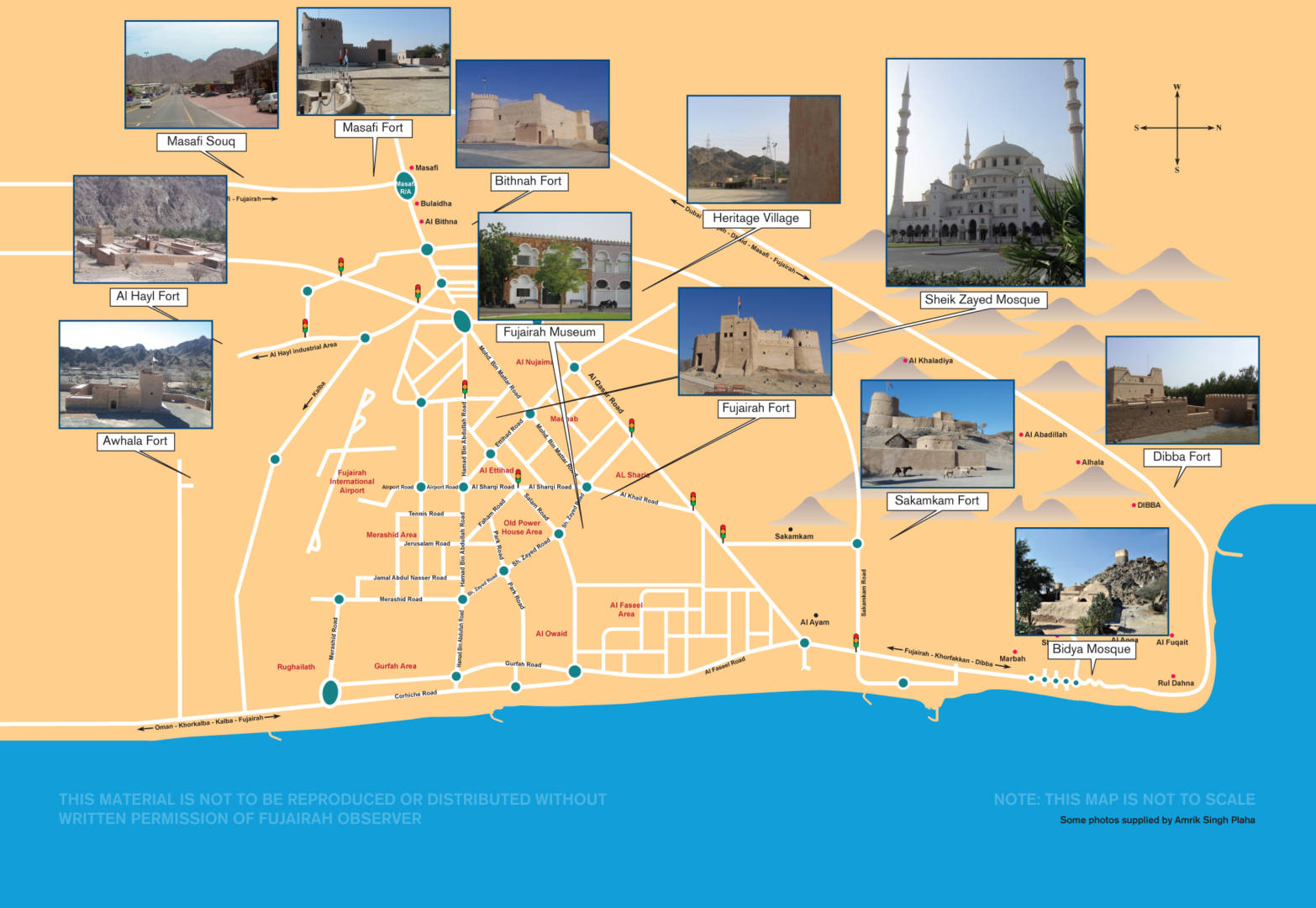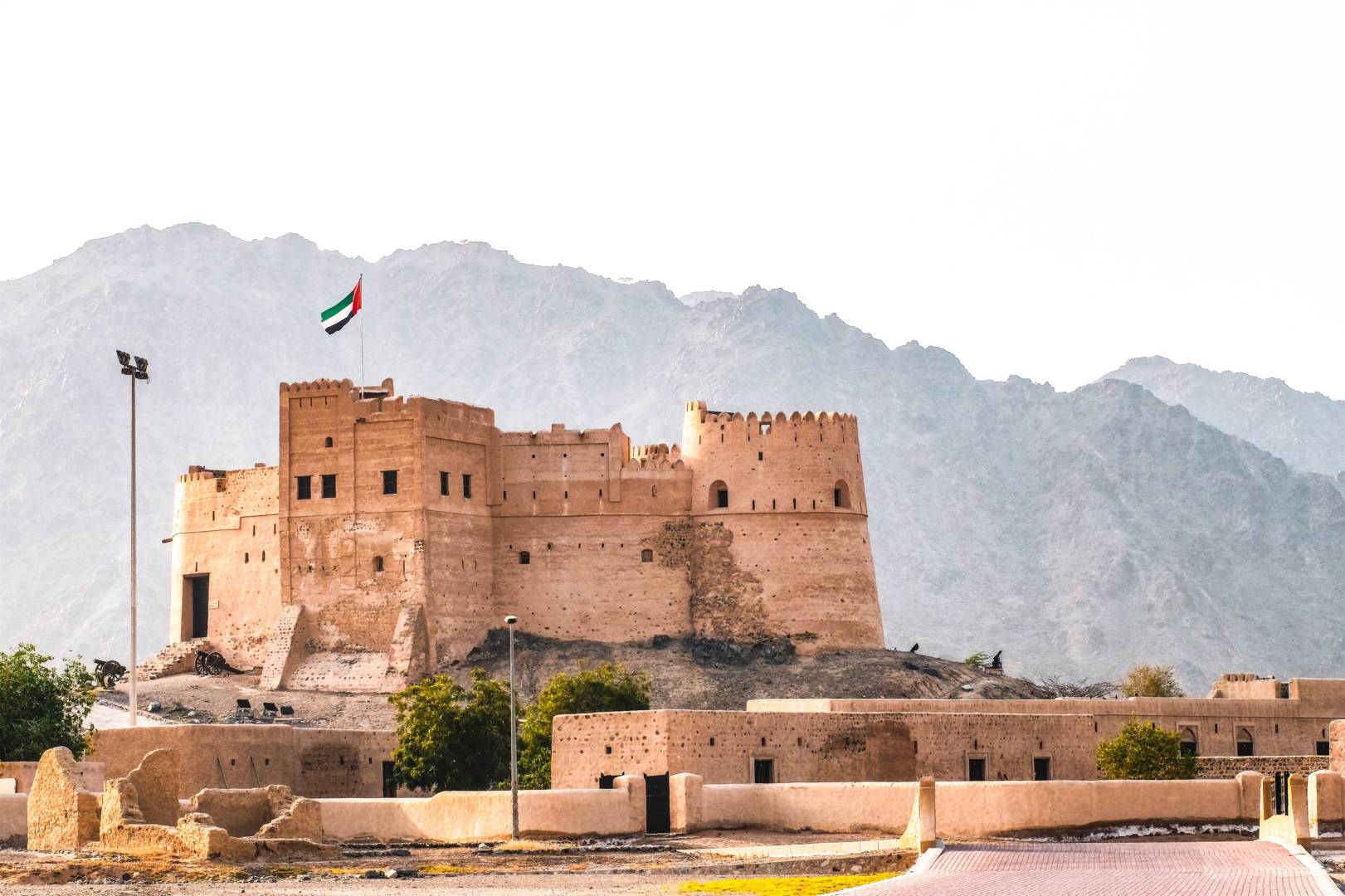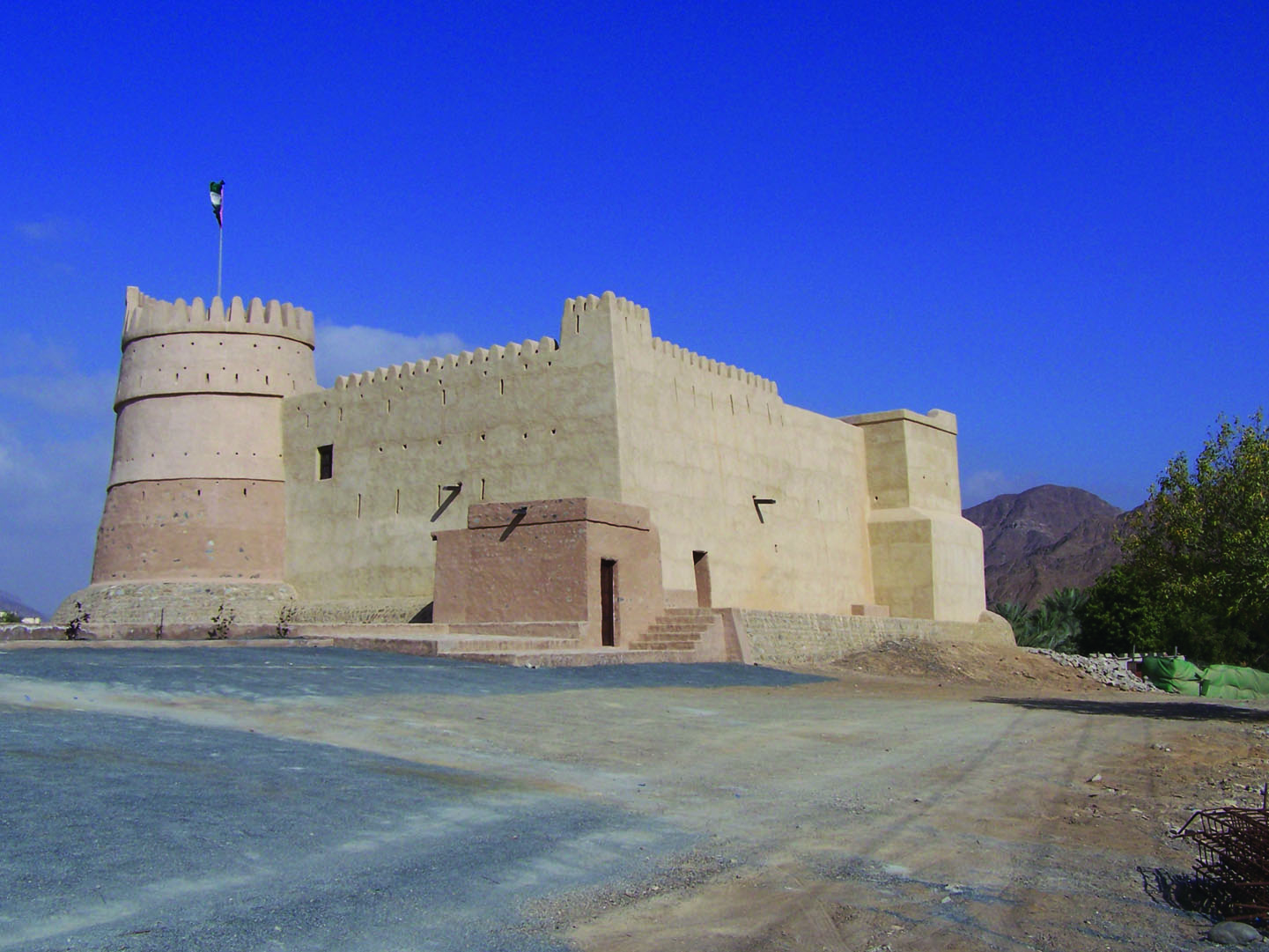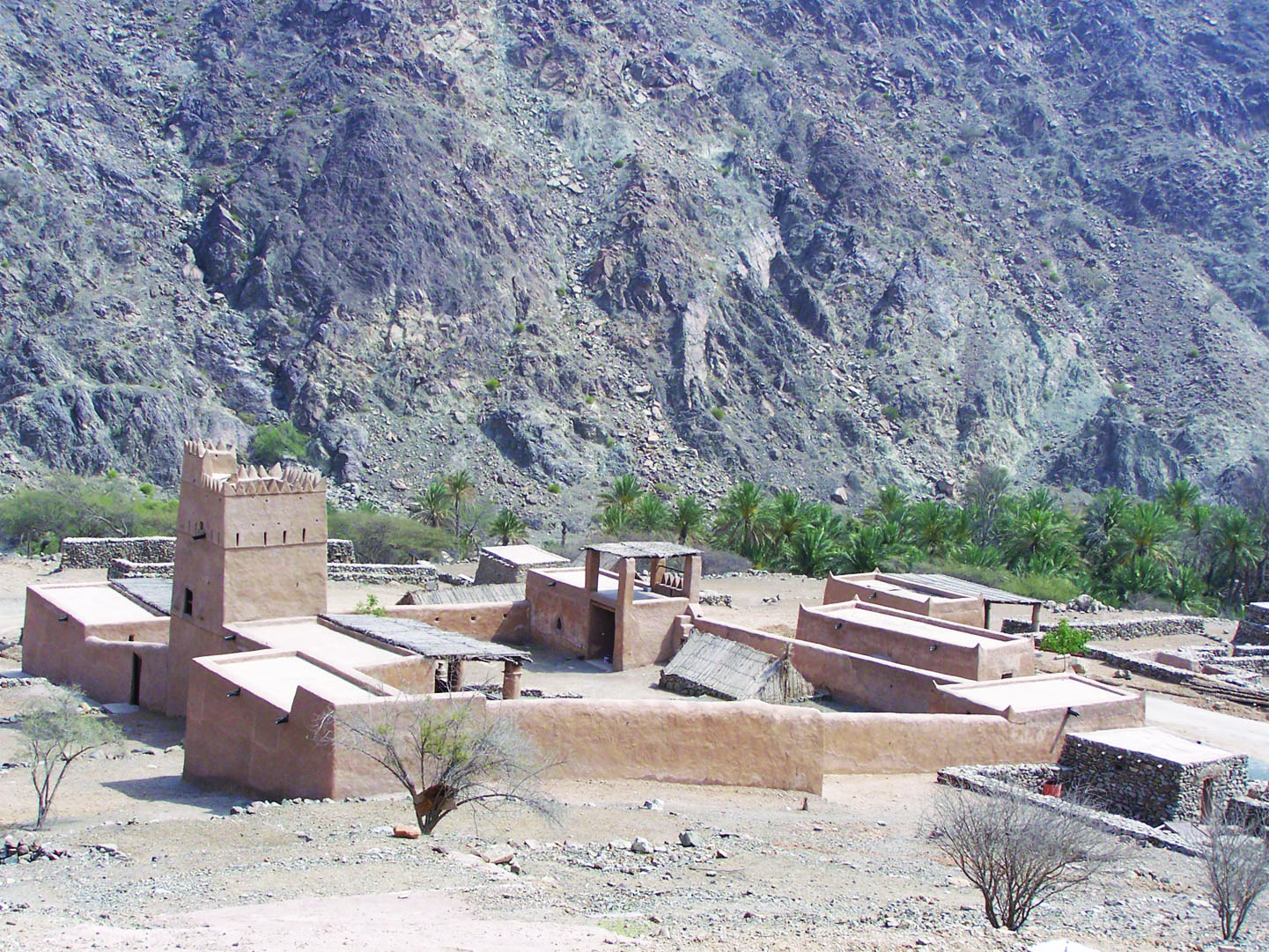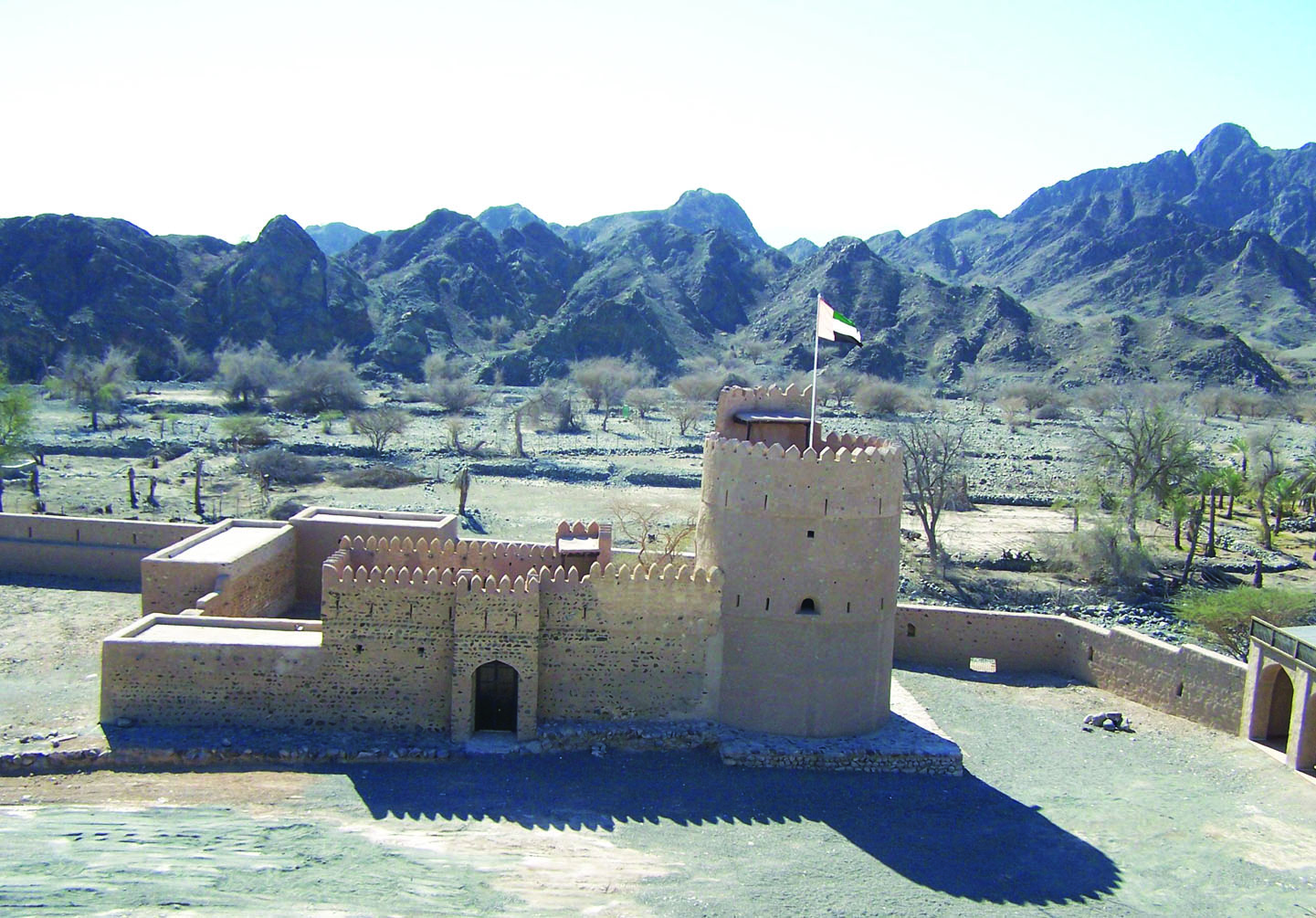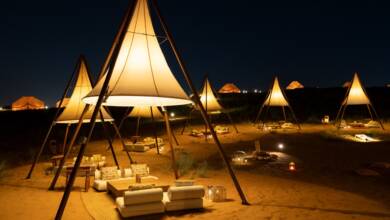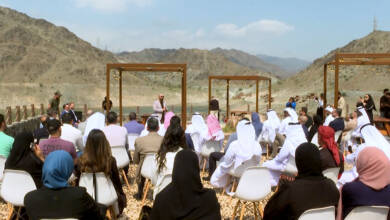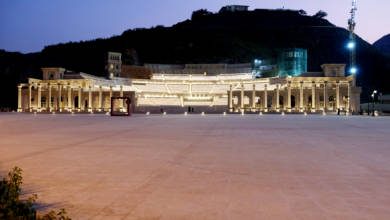All of the seven Emirates have their own distinctive identities: the majesty of Abu Dhabi. The glitz and glamour of Dubai, contrasted with the traditional culture of Sharjah. The unique natural landscapes of Ras Al Khaimah, Umm al Quwain and Ajman.
But amongst the Emirates, they all lack the archaelogical heritage possessed by Fujairah.
It is undoubtedly the richest in antiques; a veritable treasure trove of forts, settlements and mosques older than the country itself.
We at the Fujairah Observer have chosen a few sites in the area to be explored by with family and friends.
Some of the sites around the Emirate of Fujairah date back as far as five centuries and include castles, forts, towers and mosques.
Fujairah Fort
In the city, just three kilometers from the beach, the unmistakable Fujairah Fort sits on a built up hill 20 meters above sea level. Chemical analysis of the structure to have been built in the period 1500 to 1550 AD.
Overlooking the Wadi Hamm in Siji, about 15 kilometers from the city, is Al Bithnah Fort. Set Amongst picturesque mountains and palm orchards, the construction of this fort is said to date back to 1735.
Al Hayl Fort
Built in the Village of Al Hayl as a strategic stronghold on the west bank of the valley, this fort is also within 20 km driving of Fujairah City. It is supposed to have been built later in 1800s and rises 40 meters above from the surface of the valley ground.
Awhala Fort
Awhala Fort is approximately 30 minutes out of Fujairah city and features some of the more modern construction techniques that were inspired by the cities of Northern Iraq. This Islamic fort was built above the iron age foundations which were built between 1000 to 1500 BC.
Sakamkam Fort
Restored from absolute ruins, the Sakamkam Fort and its surrounding village is located less than 10 Kms from the city, and restored to high standards. On the Sakamkam road, look out for the brown signs and be prepared to go off the beaten path.
Dibba Fort
The location of this fort is in the area of Dibba Gurfa also know as Dibba Murabbah among the local people. This fort should not be confused with Dibba-Hisn. The fort is in the process of investigations to discover its history. The historical town Dibba Al-Fujairah, Dibba Al-Hisn, ruled by the Emirate of Sharjah and Dibba Al-Baya ruled by the Governorate of Musandam, Oman.
Masafi Fort
Hidden behind the bustling main road after the Masafi roundabout heading towards Dubai this fort gives a real insight into a previous way of life. There are sign posts for the fort, otherwise you would might struggle to find it. Free to visit, the custodian will gives a guided tour, and provides some details about the history and the restoration. The views of the surrounding area are excellent from the roof.
Al Bidya Mosque
About 35 kilometers along the scenic ocean road that takes you from Fujairah to Dibba sits Al Bidya Mosque, an unmistakable structure. It is estimated that the construction of this dates back to the 15th century. Renowned for its unique architectural design, the roof of the mosque has four squat, helical domes that are supported by only one centrally placed pillar that also forms the ceiling. Entrance to the mosque is through double-winged wooden doors.
Sheikh Zayed Mosque
The exquisite Sheikh Zayed Mosque is one of Fujairah’s most prominent landmarks. Set amid fountains and palm-dotted gardens the mosque can accommodate 32 thousand worshippers, making it the second largest mosque in the country. The mosque’s exterior has been constructed of stone, while the building boasts an interior of marble and granite. Six minarets rise 100 meters above 65 cascading domes.
Fujairah Heritage Village
Heritage Village near Madhab park. Several rooms depict traditional activities with models. You’ll find also a majlis (guest room), falaj (irrigation well) and shasha (fishing boat) made from palm fronds, provideing an interesting backdrop to its living reconstruction of traditional life on the east coast.
Masafi Souq
The Masafi Friday Market or Souq al Juma, as it is know locally is open seven days a week, not just Friday. This is a traditional street market found on the old Fujairah-Al Dhaid road. The main items to bargain for are rugs, earthenware, antiques and souvenirs.
Fujairah Museum
Located just next to Fujairah Fort, the museum houses an excellent collection of artifacts. These artifacts date back to the early Bronze Age which were excavated during the archeological digs at Bithnah and Qidfa. Exhibits include painted pottery, pre-Islamic silver coins, carved soapstone vessels along with Iron and Bronze Age weaponry. One of the most prized pieces of Fujairah Museum was discovered at Qidfa. It is a bowl made from a 2,200 year old ostrich egg. The museum also has a nice ethnography section which you can visit to experience a flavour of the traditional Emirati life.
Photographs credit: Amrik Singh and Fujairah Observer Archive


